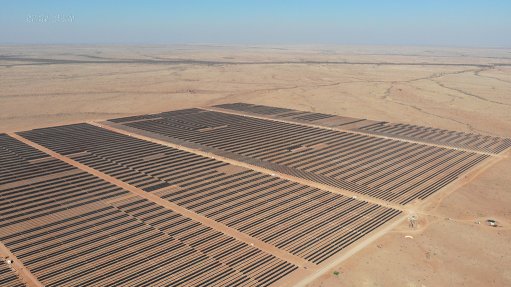Shaving the point finer and finer
Cellphone users will have noticed that the interval between when you finish entering the number (oops – I nearly wrote ‘dialling the number’) and when the other phone rings is getting slightly longer.
You enter the number, there is a three-second pause, you hear a sort of tone and then another three seconds and the other phone rings. Or not. This is a new introduction by the cellphone people of a hush-hush project which I am not allowed to name, since I will reveal the name of my source.
But it is a real project and its purpose is to make more money. It goes like this: you receive a perfectly innocuous request as to whether you would like to be charged on per-minute billing or per-second billing. The rate for one minute’s worth of conversation and 60 seconds’ worth are such that you will pay more for seconds than minutes. The catch is that, if you speak for three minutes and 30 seconds, you will be billed for four minutes. If you speak for only ten seconds, you will be billed for one minute.
Thus, if you have any thought, you will ask to be billed on a per-second basis. This is where the pause interval at the beginning of the call comes into play; for every call you make, there is six seconds worth that you are paying for and for which you are not connected to any other system. This does not amount to much for an individual, but, spread over a whole network, it is an absolute money spinner. Of course, it is inconvenient to wait an additional six seconds, but the cellphone people certainly do not care about that.
Banks also make use of a longer interval when they make the announcement that the call is recorded for quality and training purposes and that they are licensed financial providers and that please be patient – your call is important to them. I am not sure if they cut a deal with the cellphone people, but they would be stupid if they did not, for every phone call somebody makes to a bank is an absolute guaranteed 12 seconds that the person is going to stay on the line.
Banks are chronically incompetent, compared with how they were 20 years ago. Back then, you could deposit a cheque and it would show on your account three days later. Now it is two weeks later. Further, if you make a transfer from one bank to another, it reflects in the receiving account only 24 hours after it is deposited. The money thus freed up amounts to millions and millions of rands, all of which can be invested at some interest rate for between two weeks and 24 hours to the entire benefit of the bank.
The fact that this happens and is massively inconvenient to clients hardly matters to the banks. Their idea is to make as much money as they can. If, for example, you actually want to transfer money rapidly from one bank to another, you can (miracle of technology) apply for rapid transfer. This costs you R46 and you are only allowed to do one a day. You can, of course, go to your bank and draw out money and go to the bank of your recipient and deposit the money. But, ha! This also costs money – to get money in cash, you have to pay a 1% cash withdrawal fee and a 1% cash deposit fee.
In the past, such underhand squeezing money out of the public could not happen but now, with computer technology, it can. The problem is that there is a finite end to the amount the banks and cellphone companies can squeeze out of people; a cellphone company will rise up and claim it can contact you ‘instantly’. When this happens, the cellphone companies which are relying on income from excess pause time will suddenly run out of cash. It is not possible that banks can be replaced by different banks; once a banker always a banker. But something different must happen. I hope it will. Right now, I just grit my teeth and despise them all.
Comments
Press Office
Announcements
What's On
Subscribe to improve your user experience...
Option 1 (equivalent of R125 a month):
Receive a weekly copy of Creamer Media's Engineering News & Mining Weekly magazine
(print copy for those in South Africa and e-magazine for those outside of South Africa)
Receive daily email newsletters
Access to full search results
Access archive of magazine back copies
Access to Projects in Progress
Access to ONE Research Report of your choice in PDF format
Option 2 (equivalent of R375 a month):
All benefits from Option 1
PLUS
Access to Creamer Media's Research Channel Africa for ALL Research Reports, in PDF format, on various industrial and mining sectors
including Electricity; Water; Energy Transition; Hydrogen; Roads, Rail and Ports; Coal; Gold; Platinum; Battery Metals; etc.
Already a subscriber?
Forgotten your password?
Receive weekly copy of Creamer Media's Engineering News & Mining Weekly magazine (print copy for those in South Africa and e-magazine for those outside of South Africa)
➕
Recieve daily email newsletters
➕
Access to full search results
➕
Access archive of magazine back copies
➕
Access to Projects in Progress
➕
Access to ONE Research Report of your choice in PDF format
RESEARCH CHANNEL AFRICA
R4500 (equivalent of R375 a month)
SUBSCRIBEAll benefits from Option 1
➕
Access to Creamer Media's Research Channel Africa for ALL Research Reports on various industrial and mining sectors, in PDF format, including on:
Electricity
➕
Water
➕
Energy Transition
➕
Hydrogen
➕
Roads, Rail and Ports
➕
Coal
➕
Gold
➕
Platinum
➕
Battery Metals
➕
etc.
Receive all benefits from Option 1 or Option 2 delivered to numerous people at your company
➕
Multiple User names and Passwords for simultaneous log-ins
➕
Intranet integration access to all in your organisation


















